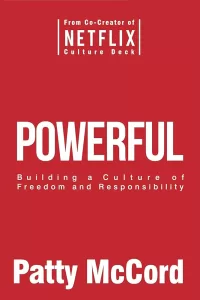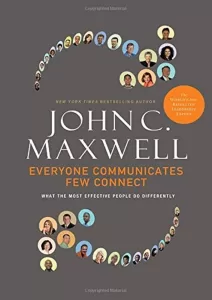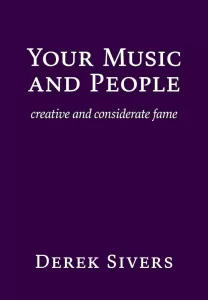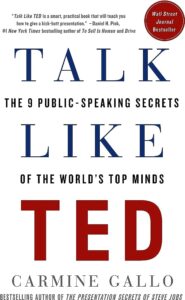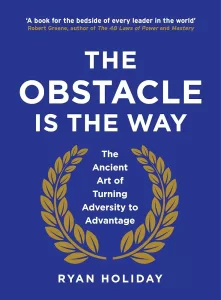Book Review: “Powerful”
Book: Powerful by Patty McCord
Reviewer: Bobby Powers
My Thoughts: 8 of 10
Who would have guessed that a PowerPoint presentation could be interesting enough to garner over 16 million views? Shockingly, Netflix achieved that feat with their now-famous "culture deck" (included at the bottom of this post). Former Netflix Chief Talent Officer Patty McCord created the slide deck, and she recently released a book that details further aspects of the company's unique culture. It's clear McCord loves to buck standard HR conventions, as she repeatedly urges readers to throw out the rule book. McCord shares how she and the executive team iterated upon the company's culture to build an engaging, productive work environment. This book will challenge you to re-think your company's status quo.
Takeaways from the Book
Direct Communication
- “One of the most important insights anyone in business can have is that it’s not cruel to tell people the truth respectfully and honestly. To the contrary, being transparent and telling people what they need to hear is the only way to ensure they both trust you and understand you.”
- “Again and again at Netflix I saw that people rebounded quickly from the initial shock of receiving negative feedback and learned not only to appreciate it but to deliver it themselves much more consistently and thoughtfully.”
- “We wanted all of our people to challenge us, and one another, vigorously. We wanted them to speak up about ideas and problems; to freely push back, in front of one another and in front of us. We didn’t want anyone, at any level, keeping vital insights and concerns to themselves.”
- “We wanted people to practice radical honesty: telling one another, and us, the truth in a timely fashion and ideally face to face. We wanted people to have strong, fact-based opinions and to debate them avidly and test them rigorously.”
- “Radical honesty also leads to the sharing of opposing views, which are so often withheld and which can lead to vital insights.”
- “When was the last time you talked openly with your team about a mistake you made in addressing a business issue?”
Culture-Building
- “Great teams are made when every single member knows where they’re going and will do anything to get there. Great teams are not created with incentives, procedures, and perks. They are created by hiring talented people who are adults and want nothing more than to tackle a challenge, and then communicating to them, clearly and continuously, about what the challenge is.”
- “Creating a culture is an evolutionary process. Think of it as an experimental journey of discovery.”
- “The best thing you can do for employees is hire only high performers to work alongside them. It’s a perk far better than foosball or free sushi or even a big signing bonus or the holy grail of stock options. Excellent colleagues, a clear purpose, and well-understood deliverable: that’s the powerful combination.”
- “As for empowerment, I simply hate that word...What I came to understand deeply and in a new way once I made my way into the scrappier start-up world is that people have power. A company’s job isn’t to empower people; it’s to remind people that they walk in the door with power and to create the conditions for them to exercise it. Do that, and you will be astonished by the great work they will do for you.”
Eliminate Policies and Procedures
- “In product development, if something doesn’t work, you get rid of it. I realized we could apply that same principle to managing people.”
- “Ask yourself: If you were to treat managing people the way you treat managing product, wouldn’t you also want to approach the entire system differently?”
- “At Netflix we did away with virtually all of the hide-bound policies and procedures. We didn’t do it in one fell swoop. We did it experimentally, step by step, over the course of years. We approached developing the culture in the same way we approached innovating the business.”
- “I discovered I loved throwing away convention. One of my favorite days was when I stood up in front of the company and said, ‘I’m going to get rid of our expense policy and I’m going to get ride of the travel policy, and I want you to just use good judgment about how you spend the company’s money. If it turns out to be a disaster, like the lawyers tell us it will, we’ll go back to the old system.’ Again we found that people didn’t abuse the freedom. We saw that we could treat people like adults and that they loved it.”
- “We experimented with every way we could think of to liberate teams from unnecessary rules and approvals.”
- “HR must be businesspeople who truly understand the way your business works, even if that’s quite technical. They should be creative, proactive partners in the hiring process. Investing time in explaining to them the details of the talents you need will pay remarkable dividends.”
Communicate Constantly About Business Challenges
- “Telling the truth about perceived problems, in a timely fashion and face to face, is the single most effective way to solve problems.”
- “The more time managers spend communicating and elaborating and being transparent about the job to be done, about the challenges the business is facing and the larger competitive context, the less important policies, approvals, and incentives are.”
- “Employees at all levels want and need to understand not only the particular work they are assigned and their team’s mission, but also the larger story of the way business works, the challenges the company faces, and the competitive landscape.”
- “It’s vital that communication go both ways. People must be able to ask questions and offer critiques and ideas. Ideally, they should be able to do so with all managers, up to the CEO...Never underestimate the value of the ideas, and the questions, that employees at all levels may surprise you with.”
- “Why should the investors on earnings calls know more about what’s happening in your business than most of the people working in it?”
Hiring for the Future
- “In my experience, one of the most important questions business leaders must regularly ask is ‘Are we limited by the team we have not being the team we should have?’”
- “An appreciation of the core elements of a company’s early success is so important, and it can be retained as companies adapt and grow. But nostalgia that inspires resistance to change will fuel discontent and often undermine growth.”
- “To stay agile and move at the speed of change, hire the people you need for the future now. On a regular basis, take the time to envision what your business must look like six months from now in order to be high-performing.”
- “Retention is not a good measure of team-building success; having a great person in every single position on the team is the best measure.”
Netflix's Famous Culture Deck
Think you’d like this book?
Other books you may enjoy:
- Creativity, Inc. by Ed Catmull with Amy Wallace
- Principles by Ray Dalio
- The Culture Code by Daniel Coyle
Other notable books by the author:
- (None)
Want to become a stronger leader?
Sign up to get my exclusive
10-page guide for leaders and learners.
